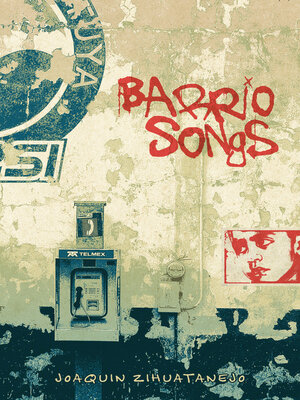
Sign up to save your library
With an OverDrive account, you can save your favorite libraries for at-a-glance information about availability. Find out more about OverDrive accounts.
Find this title in Libby, the library reading app by OverDrive.



Search for a digital library with this title
Title found at these libraries:
| Loading... |
If you were to ask him, "Who is your biggest poetic influence?" Joaquin Zihuatanejo would reply, "Mi abuelo, my grandfather." When his mother could not, and his father would not, raise him, it was Joaquin's grandfather who stepped forward and took him in and taught him everything he knows about life, poetry, and what it is to be a good man.
His grandfather was a yardman. He mowed the front and back yards of wealthy people who lived in far off foreign suburbs, and he noticed that these people would do strange things like put old, unwanted, used, household items out on the curb for any passer-by to pick up and take if they like. These foreigners called these items trash; his grandfather called them treasures. So he was a treasure hunter as well.
His most sought after treasures were books, which people would sometimes place by the box-load on the curb. He would bring these books home and challenge Joaquin to read the poems and stories out loud in English to him. Joaquin's grandfather understood English but chose not to speak it, but he demanded that Joaquin speak it to him. And these poems and stories that Joaquin would read aloud to his grandfather were his initiation into the literary world. He asked his grandfather once, "Why do you make me read these poems out loud to you?" His abuelo replied, "Mi'jo, this barrio is plagued by violence, gangs, drugs, and poverty, but when you're inside the poem or the story, none of that can harm you." And with these words, his grandfather saved him.
Many of the voices captured between these pages are merely spirits now, but they rise like a phoenix from the ashes when these poems are read. Joaquin commented once that these poems were not an act of inspiration but rather an act of desperation. If he didn't capture the voices that exist in these poems and share them with the world, then who would?
In Barrio Songs, Joaquin Zihuatanejo gives readers an unflinching look at life in the inner city barrio of America today. Brutal but honest, these narrative poems tell the story of a boy who found refuge in a world of poems and stories at a young age. From the love of his abuelo, his grandfather, to the pain associated with being born of a mother who could not, and a father who would not raise him, Joaquin paints vivid pictures with each stanza daring the reader to walk a mile in the shoes of a barrio boy.






